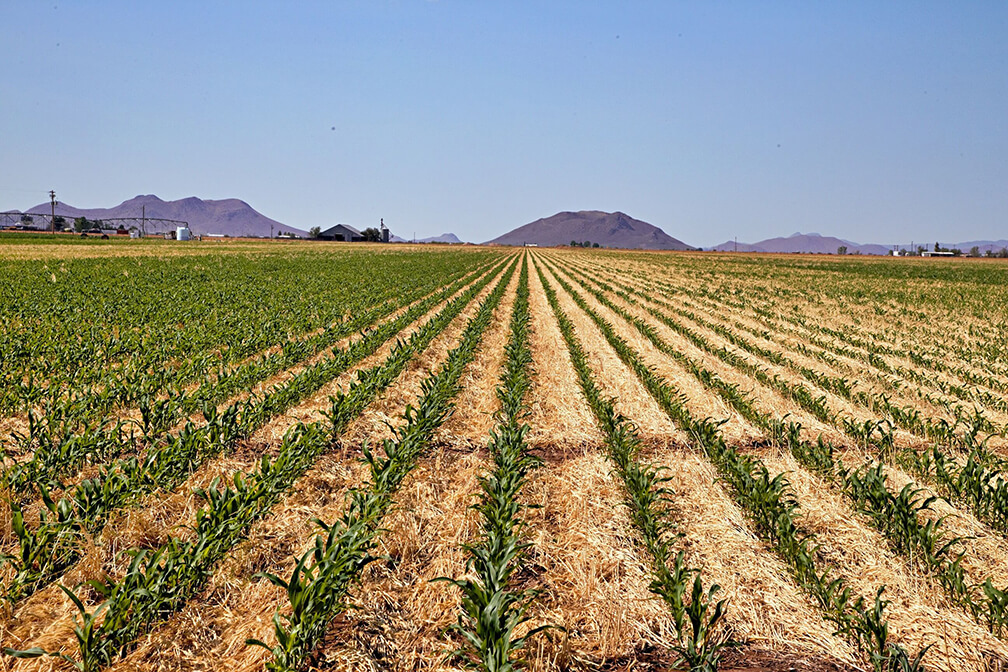Chico State’s CRARS Awarded Nearly $6 Million to Address Climate Priorities

Chico State’s Center for Regenerative Agriculture and Resilient Systems (CRARS), along with its colleges of agriculture and natural sciences, has received a California Climate Action Seed and Matching Grant totaling approximately $6 million through a historic partnership between the University of California and the state of California. Over $80 million in climate action grants were awarded to support the implementation of solutions that directly address state climate priorities.
The grant will fund the California Soil Carbon Accrual Project and Workforce Training Program designed to conduct on-farm research and remote sensing modeling technologies, while providing professional workforce training throughout California. Project lead and CRARS director Cindy Daley said the funds will be instrumental in advancing the University’s climate goals and as a regional partner working toward a higher degree of preparedness.
“Climate change is upon us, and no one feels the effects more than production agriculture,” Daley said. “It’s imperative that we develop more effective farming strategies that build resilience for future food security and create a climate-literate workforce, with the skills and knowledge to manage these changes into the future.”
The purpose of the project is to address soil erosion, degradation and diminished water availability, all critical issues facing California agriculture. The evidence suggests that regenerative farming practices can reduce soil disturbance, increase soil organic matter, improve water-holding capacity, reduce crop inputs, enhance soil biological function and microbial diversity and support the accumulation (or accrual) of soil carbon. This multi-sector, multi-disciplinary project will tackle these issues through three interlocking activities:
1) The Soil Carbon Accrual Project (SCAP) is designed to holistically compare carbon cycling associated with the standard or conventional farming system (full tillage; herbicide; fertilizers; pesticides; no cover) to a regenerative farming system (cover crops; no-till or conservation till; crop rotations) using eddy covariance tower technology and soil microbiological DNA probes to quantify the impacts on soil carbon accrual, soil microbial diversity, water use efficiency, nutrient density and economic return.
2) The California Agriculture Resiliency Index uses sustainability factors (e.g., water resources; soil quality; water use; erodibility factors; groundwater recharge value; existing land uses; wildlife habitat potential; endangered species habitat) to predict long-term resiliency for agricultural regions and suitability for diversified farming systems within the state. The model is being collaboratively developed with Chico State’s Geographical Information Center (GIC).
3) The online Technical Assistance Provider Training and Professional Certificate Program in Climate Smart/Regenerative Agriculture Practices and Implementation are designed to increase the availability of technical assistance to support rapid transition of California farms and ranches to climate-smart agricultural practices. New courses will include Carbon Farm Planning, Pollinator Habitat and Traditional Ecological Knowledge.
Project investigators hail from Chico State’s College of Natural Sciences and the College of Agriculture and the University Farm, as well as Cal State East Bay and farmer partners Hay Day Farm in Blythe, Bowles Farm in Los Banos and Josiassen Family Farms in Richvale.
Other project collaborators include the GIC at Chico State, the California Association of Resource Conservation Service, the Carbon Cycle Institute, Buzz’s Bees, the Honeybee Discovery Center and the Modoc Nation. The Modoc Nation partnership will be instrumental in carrying our shared climate goals into the most northern regions of the state on tribal lands.
The eddy covariance tower technology (also known as flux towers) is an important capability provided by the funding for this project.
“These will allow us to monitor the ‘breathing’ of agricultural systems in real-time,” said Chico State Earth and Environmental Sciences professor John Knowles. “In particular, this project will apply them to test how regenerative vs. conventional management practices affect the potential for these systems to function as carbon sinks that remove and store CO2 from the atmosphere, which could really help out in the fight against climate change.”
Daley noted that by establishing on-farm direct contrasts between farming strategies, CRARS will collect critical soil carbon accrual data to better inform the agricultural industry and policy makers.
“More directly, this field data will inform participants in our Climate Smart Technical Assistance Program so that it can be disseminated immediately to those individuals working directly with our farmers and ranchers throughout the state,” she said. More information about the grants can be found here.


